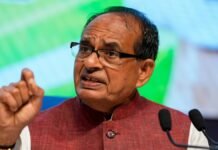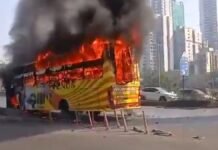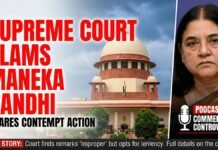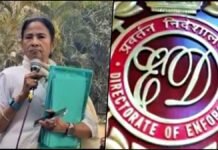
New Delhi: The Supreme Court on Tuesday issued a stern order to Delhi and the neighbouring states of Punjab, Haryana and Uttar Pradesh to ensure that stubble burning is stopped immediately to control the rising air pollution in the region. The apex court also directed the Delhi Pollution Control Board Chairperson to look into the non-operation of smog towers in the national capital and report back within a week.
A bench headed by Justice Sanjay Kishan Kaul was hearing a petition filed by environmental activist M C Mehta on the increasing air pollution in the national capital and its adverse impact on public health and the environment.
The Delhi government told the SC that it had taken comprehensive measures to tackle the pollution problem, including enforcing Stage 4 of the Graded Response Action Plan (GRAP), which involves shutting down schools, industries and construction activities. The government also said that the Commission for Air Quality Management (CAQM), a statutory body set up by the Centre, had given a report that they were hoping for zero burning of crop residue in the neighbouring states.
The bench, however, expressed dissatisfaction with the response of the states and asked them why they had not been able to prevent stubble burning, which is one of the major contributors to air pollution. The bench said that the states had failed to comply with the statutory obligations and the directions of the court given in 2019 when the Chief Secretaries of the states were summoned and asked to take concrete steps to curb the menace.
The bench also rejected the argument of the Punjab government that paddy was not its native crop and that it was introduced by the Centre to make the state self-sufficient in food production. The bench said that this could not be a political issue and that the states had to cooperate with each other and the Centre to find a solution. The bench said that Delhi could not be made to suffer because of the actions of the neighbouring states.
The bench also dismissed the suggestion of the Punjab government to form a joint committee to look into the issue of stubble burning and said that such committees had not yielded any results in the past. The bench said that the states had to take forceful actions and provide incentives to the farmers to switch to alternative crops or methods of disposal of crop residue.
The bench also asked the Centre to support the states in providing a Minimum Support Price (MSP) to the farmers so that they could shift to other crops. The bench said that the Centre had to bear 50 per cent of the cost of the MSP, while the states had to bear 25 per cent each. The bench said that the Centre could not shift the burden on the states and that it had to play a proactive role in resolving the crisis.
The bench also suggested that the states could adopt the spray developed by the Delhi government in collaboration with a scientific body, which claimed to turn stubble into fertilisers. The bench said that this could be a viable option to reduce the pollution caused by stubble burning.
The bench also directed the states to stop the blame game and work together to protect the environment and the health of the people. The bench said that it wanted all the stakeholders to act promptly and effectively to implement the court’s order.
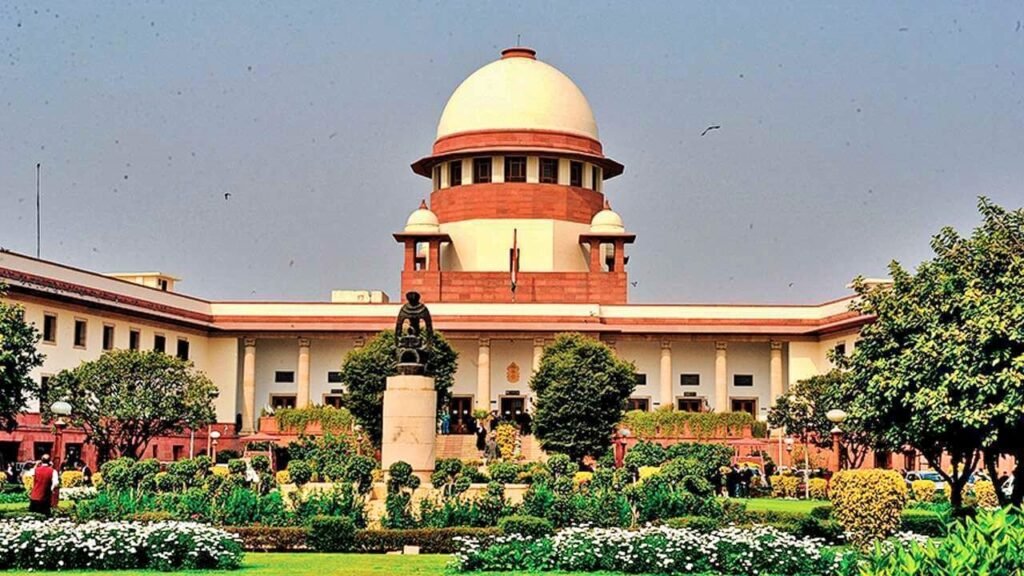
The bench also ordered that the local Station House Officers (SHOs) of the police stations in the areas where stubble burning was reported would be held responsible for any violations and would face contempt action. The bench said that the SHOs would act under the overall supervision of the Chief Secretaries of the states. The bench also directed the Delhi government to ensure that municipal solid waste (MSW) was not burnt openly and that the waste management rules were followed.
The bench said that the Chief Secretaries of the states would convene a meeting of all the stakeholders on Wednesday and submit a report on the steps taken to comply with the court’s order. The bench also said that the Delhi Pollution Control Board Chairperson would submit a report on the status of the smog towers in the national capital within a week.
The bench adjourned the hearing till November 10 and said that it would monitor the situation closely.




